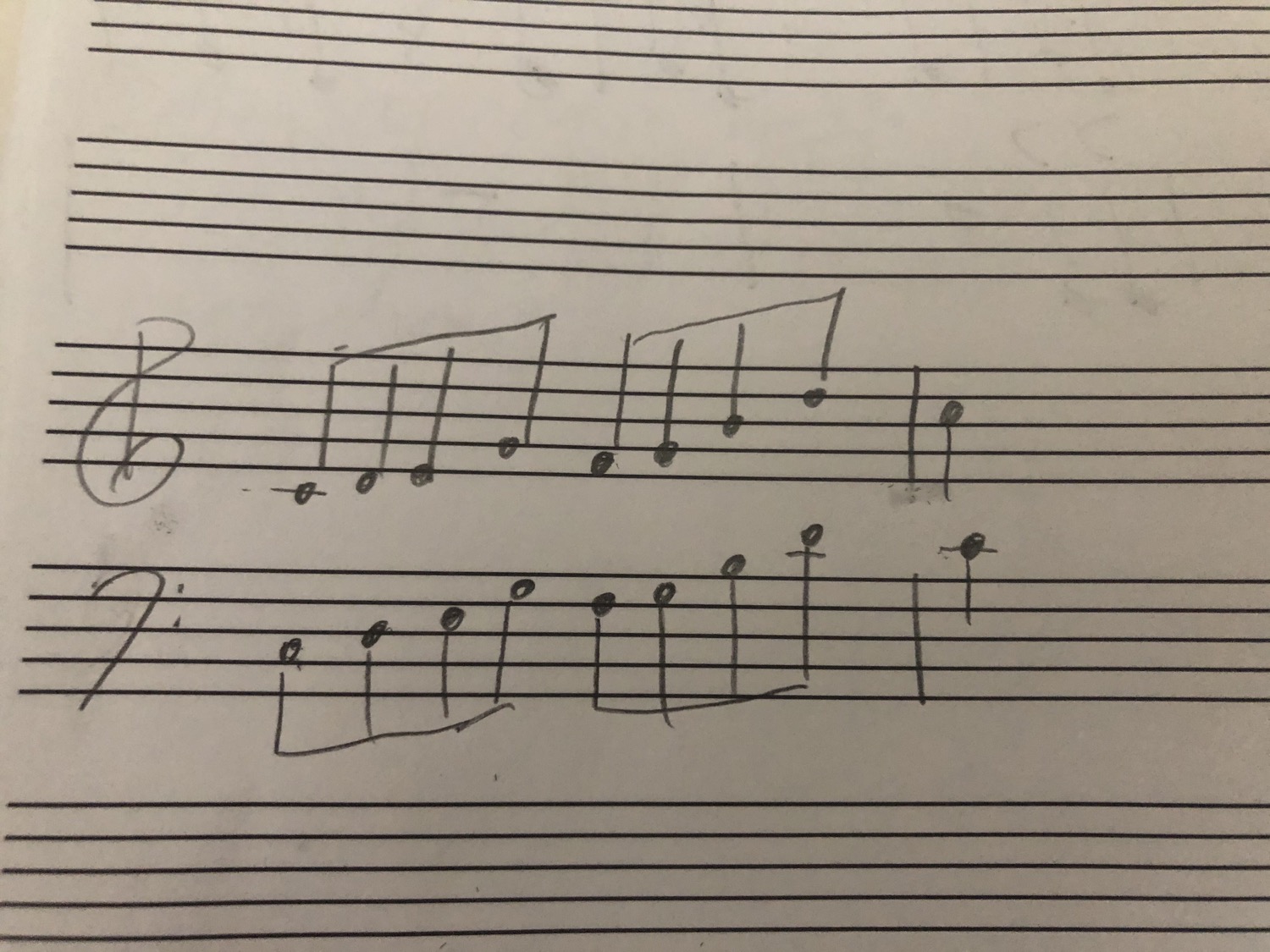Quick Thought: Other People's Transcriptions
- brendan
- Mar 22, 2019
- 2 min read
A friend who is does a lot of IT programming once told me in reference to cloud backups: "There is no cloud, just someone else's computer." Somehow I that became in my head "There's just somebody else's ears."
If you're learning something that wasn't written down to begin with, make effort to use your own ears first. After you're done, if there's something you feel uncomfortable with, feel free to check a trusted source and decide where the sonic truth lies. It often is somewhere in between.
Two things I've learned:
a) people in the business of transcribing often either are in a time crunch and sometimes settle for "close enough," or simplify so to make a part easier to play and thus their transcription more marketable. I have no doubts of Chuck Sher's ability to transcribe a simple bass line. Yet this is what's written for the Cold Duck Time bass line in "REAL EASY JAZZ"

Technically, it might be slightly easier to play than the actual part, but not by much. And it's not the part, plain and simple. (also no break?)
b) those "song book piano" reductions usually are pretty weak. They will pretty much keep the vocal melody on the top of the right hand and have the left hand play something vaguely resembling the bass part. That leaves the first three or four fingers on the pianists right hand to represent the entire orchestration. They are a good tool for singers to work on songs, but, if you need to know how a song actually goes, try your ears. If you need proof, find a song with a bunch of slash chords and compare the piano chord that is written, to the chord symbol used, to the guitar voicing written. They can be laughably mismatched.
You will end up in time crunches where there just isn't time to learn it by ear, or someone springs something on you at the last second and you need to use a transcription or chart. If you're diligent about learning as much as you can by ear, however, you'll notice you can learn a lot of songs more accurately by listening through a couple times than you can search the depths of google for something that doesn't quite cut it.



Comments